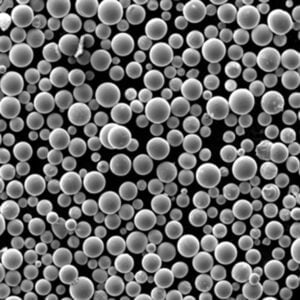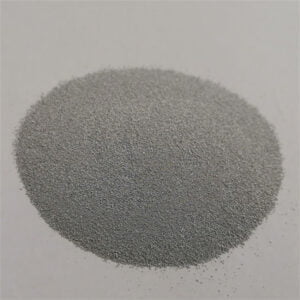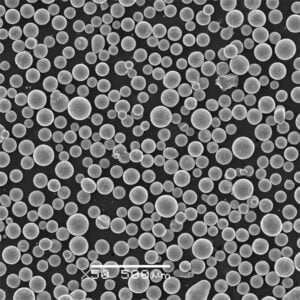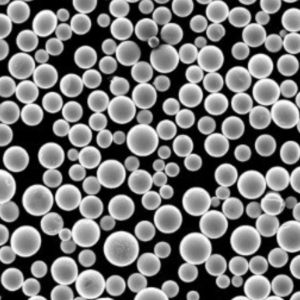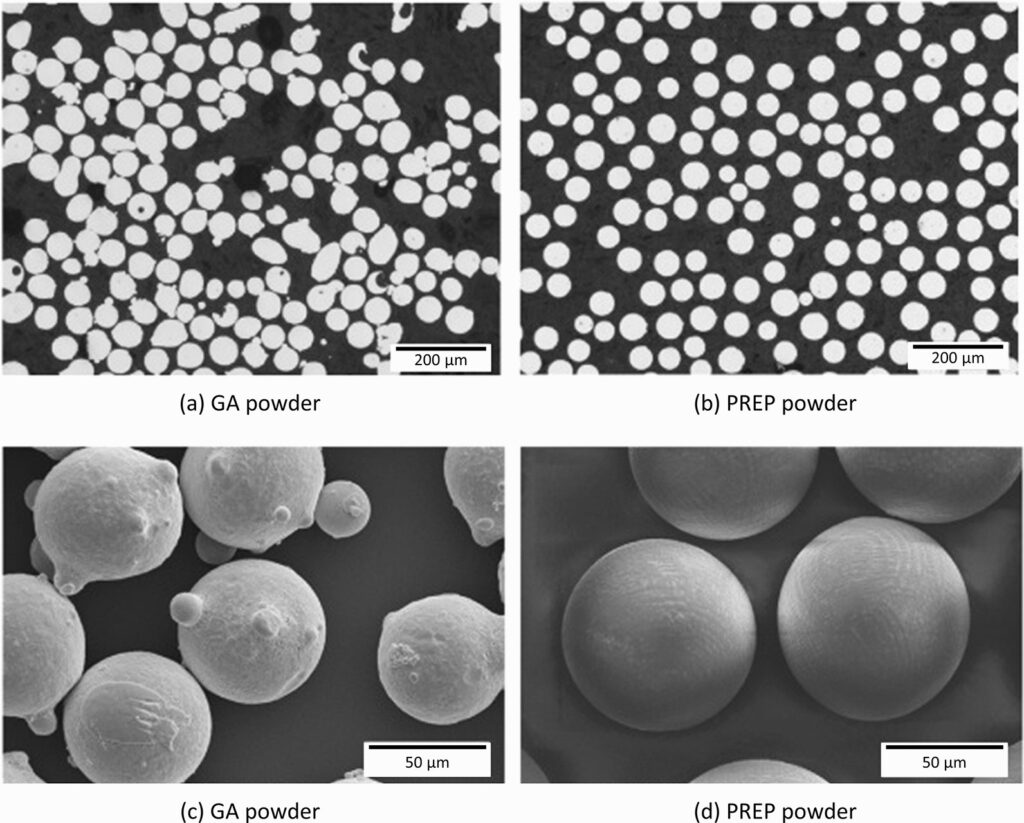
CuSn20 Powder: Discover Its Game-Changing Strength and Versatility
Low MOQ
Provide low minimum order quantity to meet different needs.
OEM & ODM
Provide customized products and design services to meet unique customer needs.
Adequate Stock
Ensure fast order processing and provide reliable and efficient service.
Customer Satisfaction
Provide high quality products with customer satisfaction at the core.
share this article
Table of Contents
When it comes to industrial materials, the CuSn20 powder stands out as an exceptional alloy for many applications. With its high tin content of 20%, this copper-tin alloy (also known as tin bronze) offers a superb balance of strength, corrosion resistance, and wear durability. Whether you’re involved in marine engineering, automotive manufacturing, or industrial machinery, CuSn20 powder is likely to become an indispensable resource for your project. But what makes this material so special, and why should you consider it over other copper alloys?
In this comprehensive guide, we’ll dive deep into the world of CuSn20 powder—exploring its composition, properties, applications, specifications, and even pricing. Whether you’re a seasoned engineer or just getting started, this article will give you everything you need to make informed decisions about using CuSn20 powder for your next project.
Overview of CuSn20 Powder
CuSn20 powder is a tin bronze alloy comprised of 80% copper and 20% tin. The high percentage of tin gives it enhanced corrosion resistance, even in saltwater environments. Additionally, the alloy is known for its excellent strength and wear resistance, making it suitable for components that experience high mechanical stress and friction.
The powder form of CuSn20 allows it to be used in powder metallurgy, 3D printing, and various additive manufacturing processes. It’s a versatile material that can be sintered or compacted into complex shapes, providing flexibility and convenience for manufacturers who need precision.
Key Features of CuSn20 Powder
- High Corrosion Resistance: Especially suited for marine environments and exposure to chemicals.
- Superior Mechanical Strength: Perfect for load-bearing applications like gears and bearings.
- Excellent Wear Resistance: Ensures long-lasting performance in high-friction environments.
- Good Machinability: Easier to work with compared to other high-strength alloys.
- High Tin Content: The 20% tin provides both enhanced dimensional stability and corrosion resistance.
Composition of CuSn20 Powder
The composition of CuSn20 powder is quite straightforward, but it’s this specific balance of copper and tin that gives the alloy its unique properties. The copper provides ductility and thermal conductivity, while the tin offers corrosion resistance and hardness.
CuSn20 Powder Composition Breakdown
| Element | Percentage (%) | Role in Alloy |
|---|---|---|
| Copper (Cu) | 80% | Provides ductility, thermal conductivity, and stability. |
| Tin (Sn) | 20% | Enhances strength, corrosion resistance, and hardness. |
This composition results in an alloy that is both strong and durable, making it a popular choice for heavy-duty applications.
Properties and Characteristics
The physical and mechanical properties of CuSn20 powder are what make it such a versatile material for so many industries. Here, we’ll explore the key characteristics that make this alloy a top choice in a variety of applications.
Key Properties
| Property | Value | Explanation |
|---|---|---|
| Density | 8.8 g/cm³ | High density, contributing to its strength and durability. |
| Melting Range | 850°C – 1000°C | High melting point, suitable for high-temperature applications. |
| Tensile Strength | 400 – 450 MPa | High strength, making it ideal for load-bearing components. |
| Hardness (Brinell) | 100 – 180 HB | High hardness, which enhances wear resistance in high-friction areas. |
| Electrical Conductivity | ~10% IACS | Lower than pure copper, but sufficient for many industrial uses. |
| Corrosion Resistance | Excellent | Performs well in marine and chemical environments. |
| Thermal Conductivity | 50 W/m·K | Moderate, useful for heat dissipation in machinery. |
| Machinability | Good | Easier to machine compared to other copper alloys with less tin. |
These properties make CuSn20 powder a preferred material in industries requiring robust mechanical strength, wear resistance, and corrosion resistance. Its ability to withstand high temperatures and mechanical stress makes it a versatile material for a wide range of applications.
Applications
Thanks to its balance of strength and corrosion resistance, CuSn20 powder finds use across a variety of industries. From marine engineering to automotive components, this alloy is chosen for applications where durability and performance are key.
Common Uses
| Industry | Application | Reasons for Use |
|---|---|---|
| Marine | Propellers, pumps, valves | Exceptional corrosion resistance in saltwater environments. |
| Automotive | Bearings, bushings, gears | High wear resistance and mechanical strength for friction-heavy components. |
| Aerospace | Bearings, landing gear components | High strength-to-weight ratio and durability in high-stress environments. |
| Industrial Machinery | Gears, dies, molds | High hardness and wear resistance, making it ideal for heavy-duty operations. |
| Construction | Architectural hardware, fittings | Combines aesthetic appeal with long-term durability and corrosion resistance. |
Marine and Automotive Applications
One of the most prominent sectors where CuSn20 powder is used is the marine industry. Its outstanding corrosion resistance makes it ideal for propellers, pumps, and valves, all of which are exposed to saltwater and harsh environmental conditions. Additionally, in automotive applications, CuSn20 is favored for bearings, gears, and bushings due to its wear resistance and mechanical strength—essential for components that experience high levels of friction and stress.
Aerospace and Industrial Machinery Applications
In the aerospace industry, CuSn20 powder is highly valued for its strength and durability—critical factors in components like bearings and landing gear parts. Likewise, in industrial machinery, CuSn20 is often used for gears, dies, and molds, where its high hardness ensures durability in equipment subjected to heavy loads and stress.
Specifications, Sizes, and Standards
When choosing CuSn20 powder, it’s crucial to understand the various specifications, sizes, and standards. These factors will determine which type of CuSn20 powder is best suited for your application, whether you’re using it for casting, powder metallurgy, or additive manufacturing.
Specifications, Sizes, and Grades
| Specification | Description |
|---|---|
| Particle Size | Typically ranges from 20 to 150 microns, depending on the application. |
| Purity | Typically 99%+, ensuring high-quality material with consistent properties. |
| ISO 9001 Certification | Ensures the material meets quality management standards. |
| ASTM B505 | Standard for continuous cast copper alloy, including CuSn20. |
| Form | Available as powder, ingots, or bars for different manufacturing processes. |
Choosing the Right Size and Grade
The particle size of CuSn20 powder is a critical factor depending on your application. For additive manufacturing and powder metallurgy, finer powders (20-50 microns) are often preferred for their ability to be compacted into intricate shapes. Larger particle sizes (50-150 microns) may be more suitable for casting and sintering processes, where strength and hardness are prioritized.
Suppliers and Pricing
When sourcing CuSn20 powder, you’ll find that several factors influence the price—from purity and particle size to the supplier’s reputation. Below is a breakdown of some of the top suppliers and their pricing ranges for CuSn20 powder.
Top Suppliers and Prices
| Supplier | Price Range (per kg) | Notes |
|---|---|---|
| American Elements | $50 – $120 | High-purity CuSn20 powder for industrial manufacturing. |
| Höganäs AB | $45 – $105 | Specializes in custom particle sizes for automotive and marine applications. |
| Makin Metal Powders | $40 – $110 | Known for producing high-grade copper alloys for various industries. |
| Belmont Metals | $55 – $125 | Offers precision-grade CuSn20 powder for foundry and casting applications. |
Factors Influencing Pricing
Several factors can affect the pricing of CuSn20 powder:
- Purity: Higher purity levels generally command higher prices.
- Particle Size: Finer powders are typically more expensive due to the additional processing required.
- Supplier Reputation: Established suppliers with certifications like ISO 9001 may charge more due to their rigorous quality control processes.
Advantages and Limitations
Like all materials, CuSn20 powder has both advantages and limitations. Knowing these can help you determine if this alloy is the right fit for your specific application.
Advantages
| Advantage | Why It’s Important |
|---|---|
| High Corrosion Resistance | Performs exceptionally well in marine environments and in contact with chemicals. |
| Superior Wear Resistance | Ideal for applications with friction, such as bearings, gears, and bushings. |
| Good Machinability | Easier to machine compared to other bronze alloys, making it versatile in manufacturing. |
| High Strength and Hardness | Provides durability for load-bearing and high-stress components. |
| Thermal Stability | Performs well in high-temperature applications, such as engines and turbines. |
Limitations
| Limitation | Why It’s a Concern |
|---|---|
| Lower Conductivity | Not as conductive as pure copper, limiting its applications in electrical systems. |
| Higher Cost | More expensive than other bronze alloys, such as CuSn6 or brass. |
| Oxidation | Can oxidize over time, requiring coatings or treatments for some applications. |
CuSn20 Powder vs Other Copper Alloys
When considering CuSn20 powder, it’s important to compare it to other popular copper alloys to understand its strengths and weaknesses. Below, we’ll compare CuSn20 to other alloys like CuSn6 and brass.
Comparison of CuSn20 Powder to Other Alloys
| Alloy | Strengths | Weaknesses |
|---|---|---|
| CuSn20 Powder | High corrosion resistance, wear resistance, and strength. | More expensive than CuSn6 and brass. |
| CuSn6 Alloy | Slightly better conductivity and ductility. | Lower wear resistance and hardness compared to CuSn20. |
| CuZn Alloy (Brass) | Affordable, good for low-stress applications. | Poor wear resistance and corrosion resistance compared to CuSn20. |
| Pure Copper | Best thermal and electrical conductivity. | Lacks mechanical strength and wear resistance. |
Why Choose CuSn20 Over Other Alloys?
- Better Strength and Wear Resistance: Compared to CuSn6 and brass, CuSn20 offers superior strength and durability, making it ideal for applications where robustness is essential.
- Excellent Corrosion Resistance: CuSn20 outperforms brass and CuSn6 in corrosion resistance, especially in marine environments.
- Cost vs. Performance: While CuSn20 may be more expensive than some alternatives, its superior performance in high-stress and corrosive environments justifies the additional cost.
Frequently Asked Questions (FAQs)
FAQ Section
| Question | Answer |
|---|---|
| What is CuSn20 powder used for? | CuSn20 powder is commonly used in bearings, gears, bushings, and marine components due to its wear resistance and corrosion resistance. |
| How much does CuSn20 powder cost? | The price ranges from $40 to $125 per kg, depending on factors like purity and particle size. |
| What industries commonly use CuSn20 powder? | CuSn20 powder is widely used in marine, automotive, aerospace, and industrial machinery sectors. |
| How does CuSn20 powder compare to CuSn6? | CuSn20 offers better wear resistance and strength, while CuSn6 has slightly higher ductility and conductivity. |
| Is CuSn20 powder environmentally friendly? | Yes, CuSn20 is recyclable, and its durability helps reduce waste by extending the lifespan of components. |
| Can CuSn20 powder be used for 3D printing? | Yes, CuSn20 powder is suitable for additive manufacturing and powder metallurgy applications. |
| Does CuSn20 powder oxidize over time? | Yes, CuSn20 can oxidize if not properly coated, especially in outdoor environments. |
Conclusion: Is CuSn20 Powder Right for Your Project?
In conclusion, CuSn20 powder is a powerful, corrosion-resistant, and wear-resistant alloy that performs excellently in demanding environments. Whether you’re working in marine applications, automotive engineering, or industrial machinery, CuSn20’s strength, durability, and machinability make it an excellent material for a wide range of uses.
While it may cost more than other alloys like CuSn6 or brass, the superior performance it offers in high-stress and corrosive environments often justifies the price. If your project demands a material that can withstand friction, mechanical stress, and harsh conditions, CuSn20 powder is definitely worth considering.
By now, you should have a thorough understanding of CuSn20 powder’s composition, properties, and applications, helping you make an informed decision on whether it’s the right material for your project.
Get Latest Price
About Met3DP
Product Category
HOT SALE
CONTACT US
Any questions? Send us message now! We’ll serve your request with a whole team after receiving your message.

Metal Powders for 3D Printing and Additive Manufacturing
COMPANY
PRODUCT
cONTACT INFO
- Qingdao City, Shandong, China
- [email protected]
- [email protected]
- +86 19116340731






